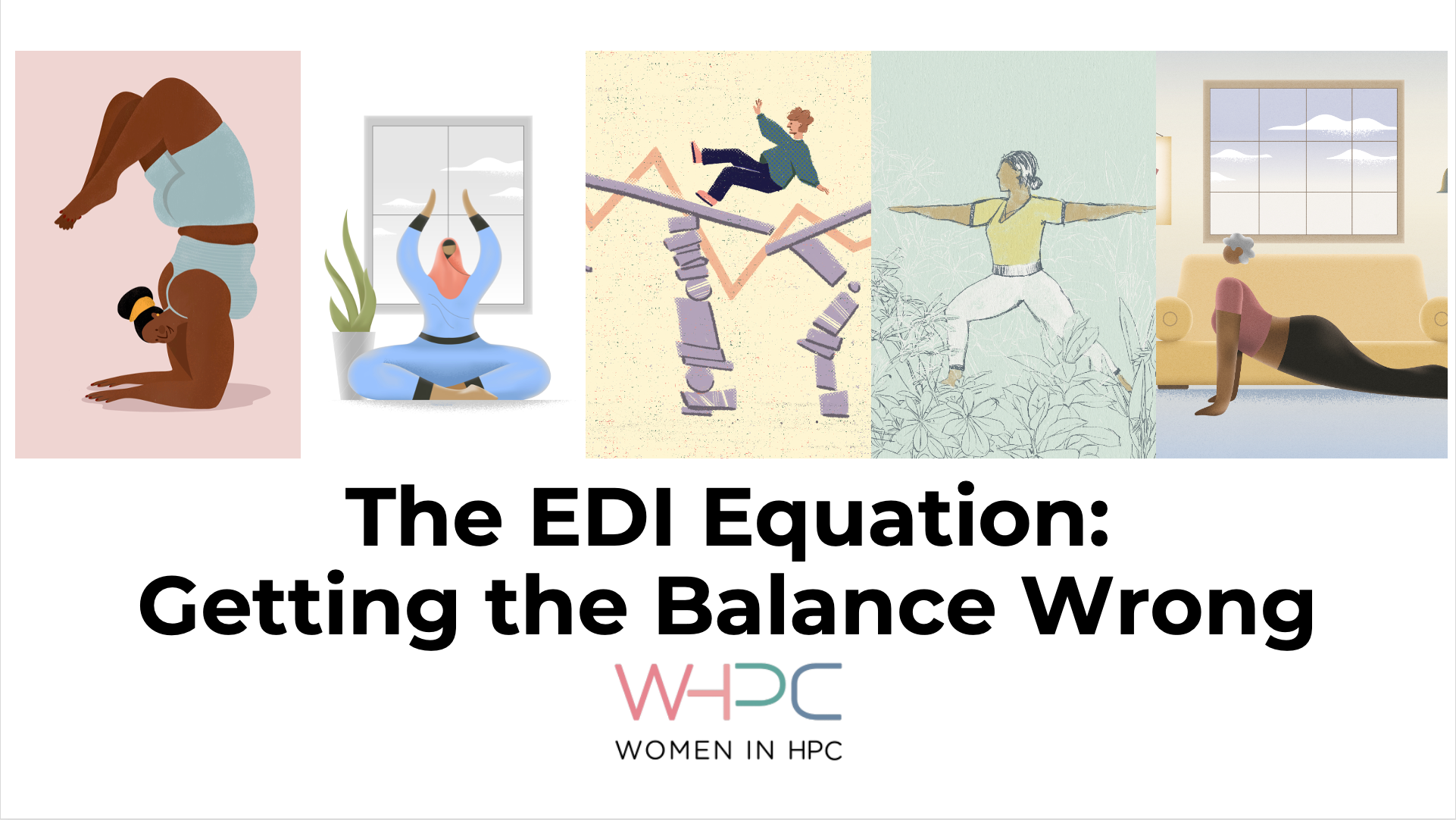The EDI Equation: Getting the Balance Wrong
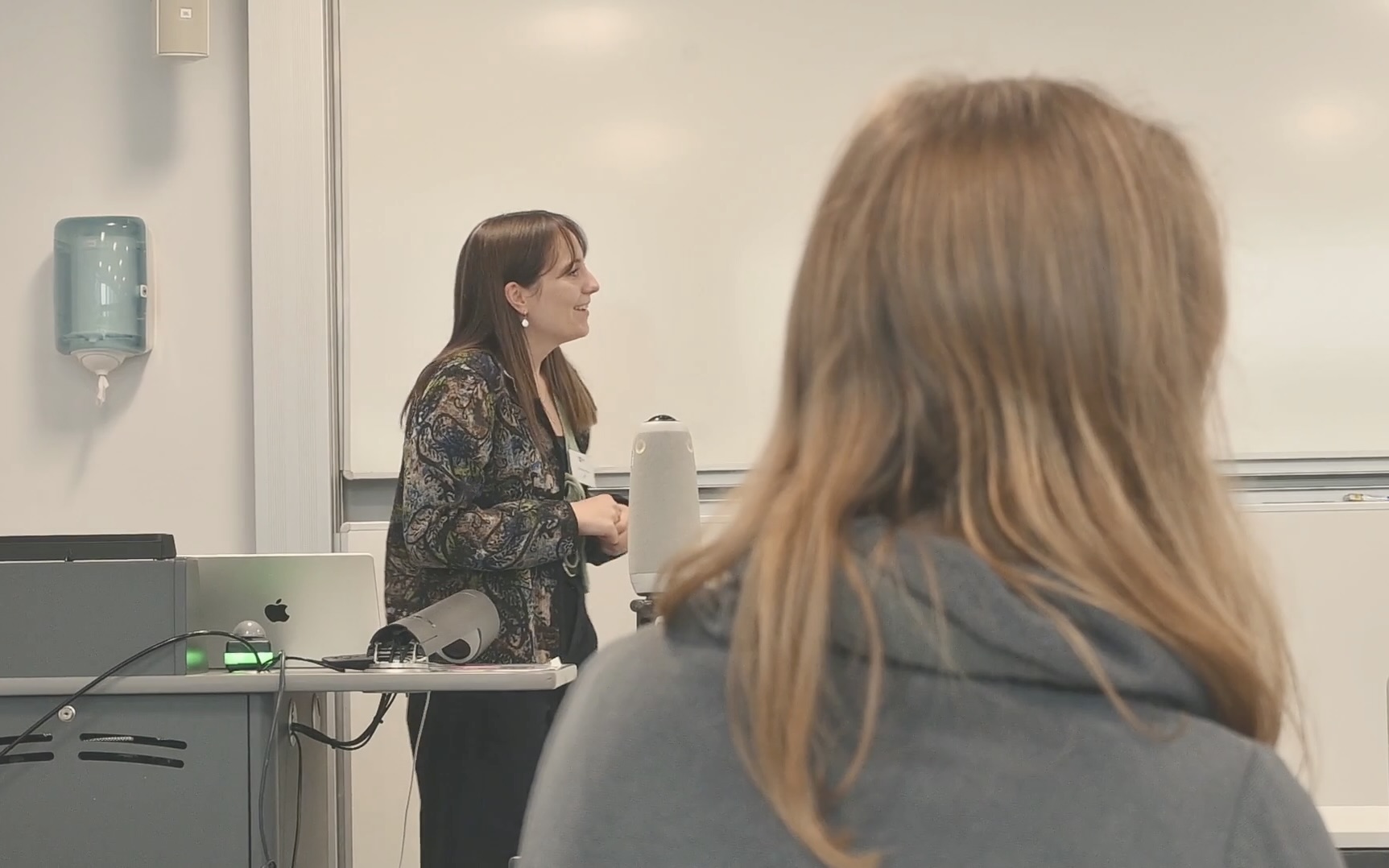
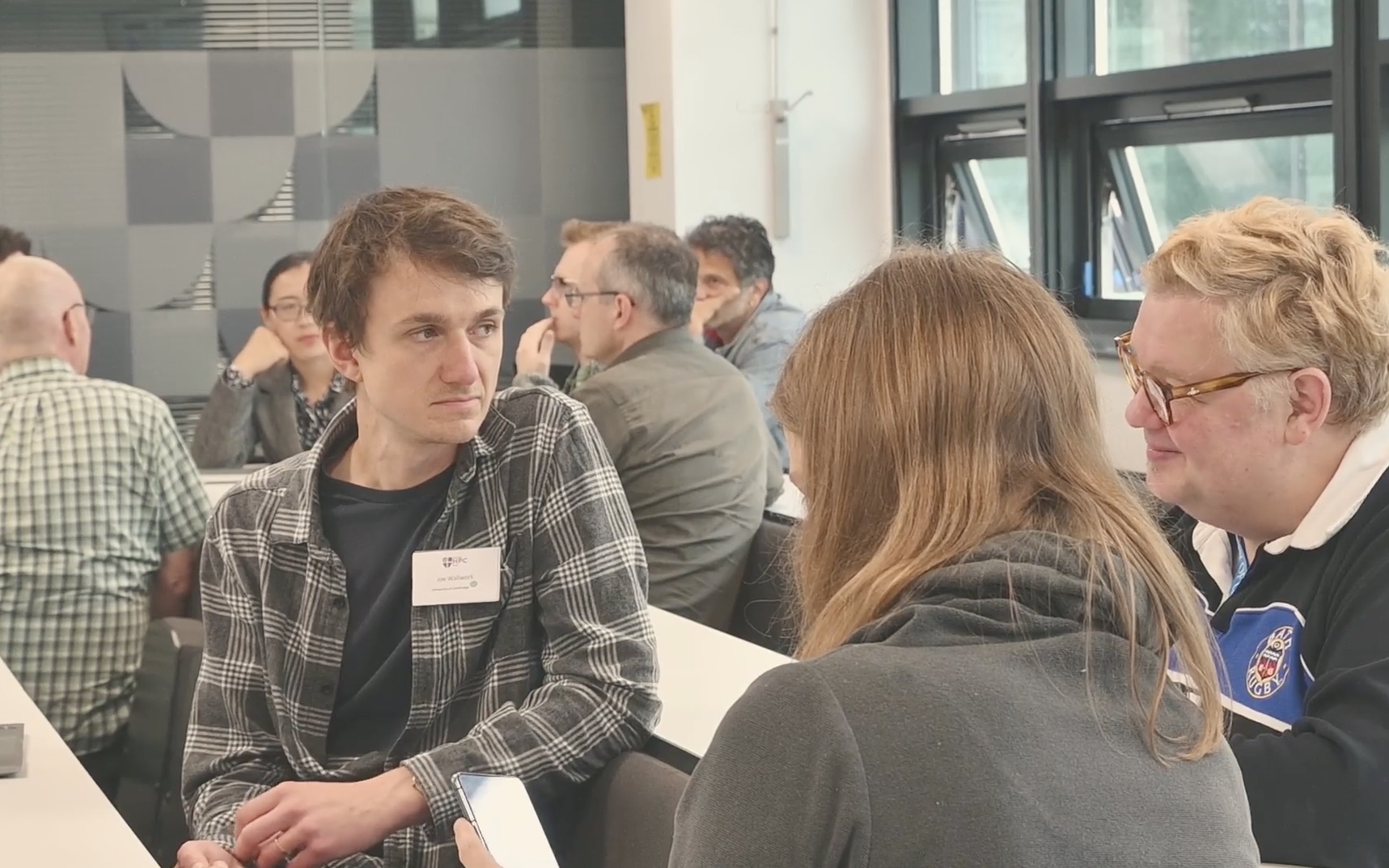
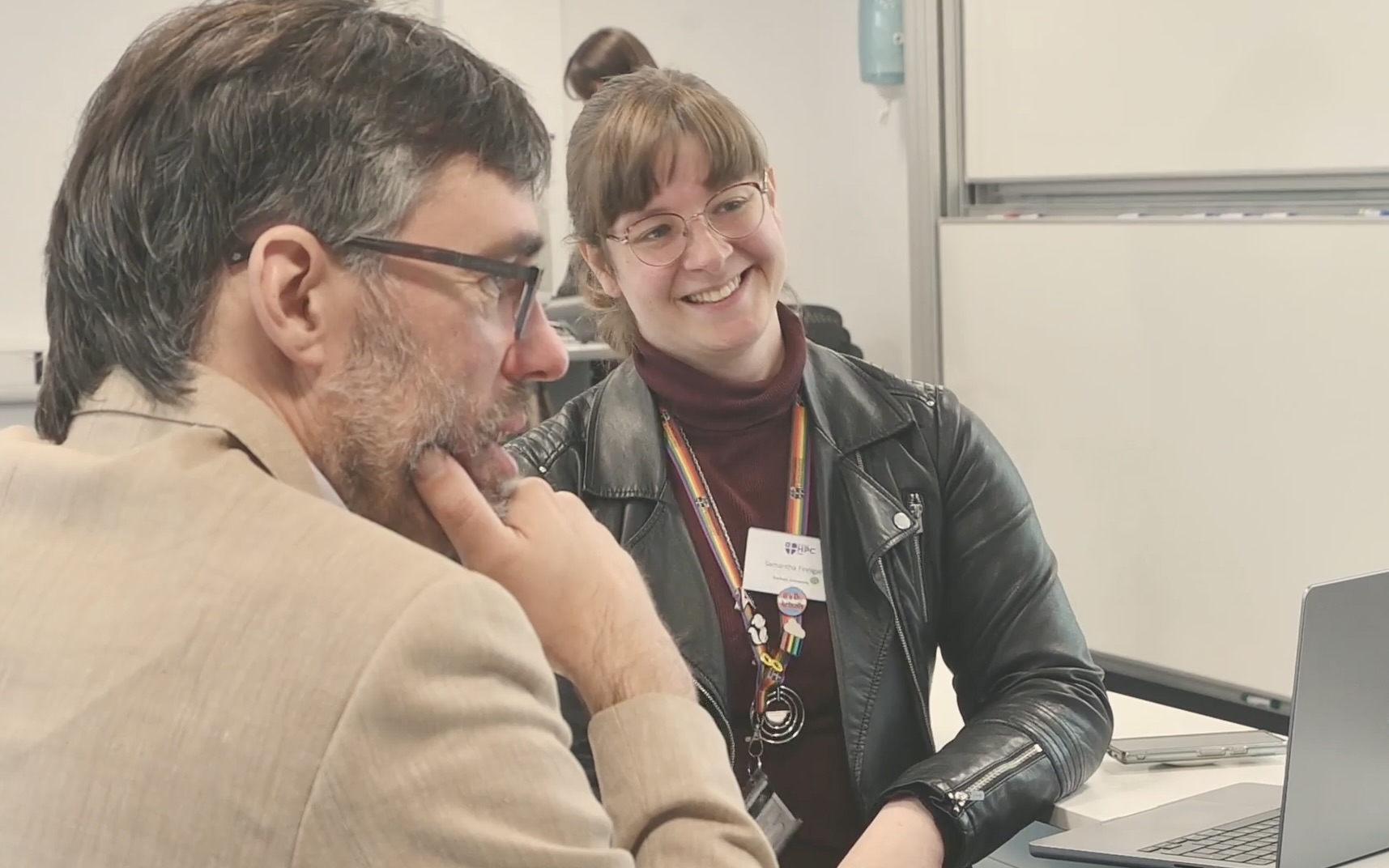
The Durham HPC Days is an annual event where the UK HPC community comes together to share their work, discuss current challenges, and connect through talks, workshops, and tutorials. To learn more about the 2025 event, check out our previous blog post here!
During the week, there were two sessions organised by the UK WHPC community discussing the concept of an “EDI equation” and what the future of EDI initiatives might look like.
EDI efforts often rely on the passion and dedication of volunteers who donate time alongside their full-time careers. Often these volunteers have experienced not feeling included and want to prevent this from happening to someone else. So, there is a real emotional connection and an urgency to create impactful change quickly… because if you don’t fight for the change, who will?
This model can easily become unsustainable, with an emotional toll on individuals and unrealistic expectations on volunteer-led initiatives to enact generational change.
We came up with the concept of the “EDI equation” as an interpretation of all the elements which need to be perfectly balanced for EDI initiatives to be sustainable and impactful.
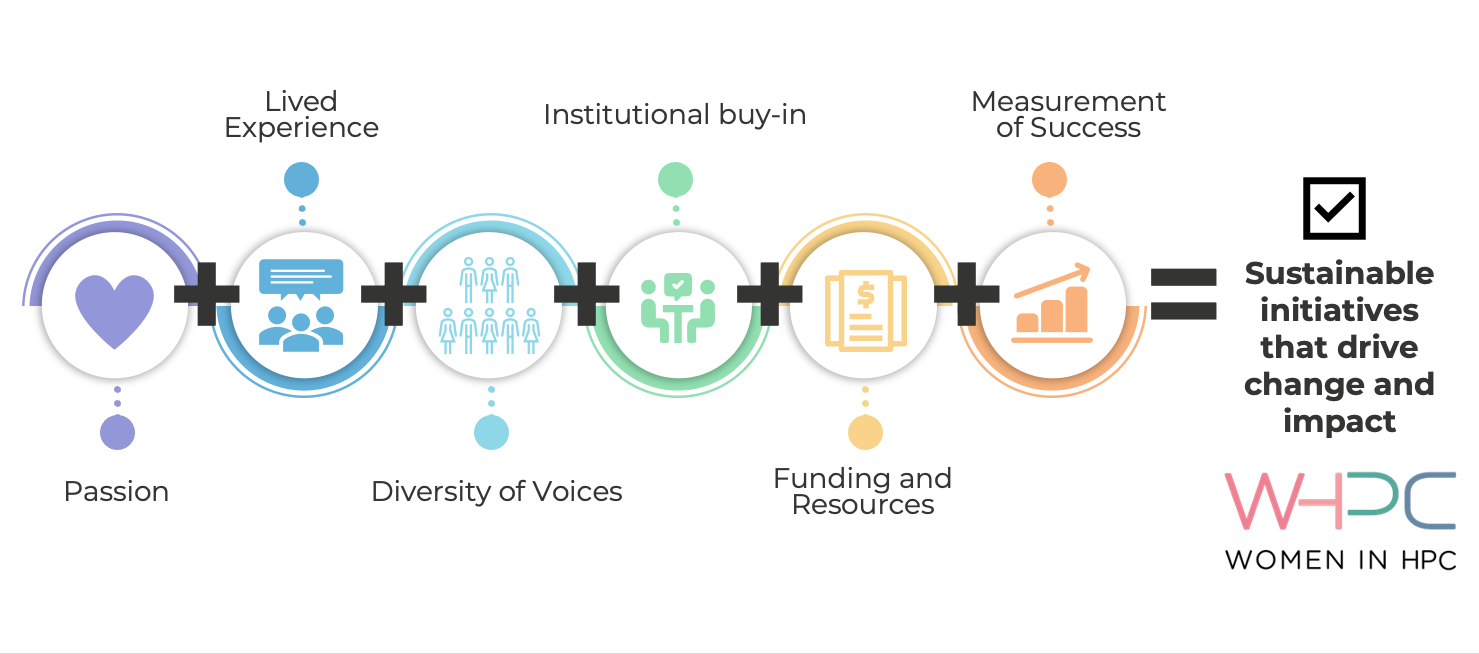
Session 1: Panel of Experts
Kicking off the discussion, a panel of experts came together to discuss their experiences of volunteering for EDI efforts and what needs to change to help with sustainability and more engagement from the wider community. Our discussion touched on some key points and challenges which are commonly faced:
- Imposter syndrome and its impact on individuals.
- The influence of unconscious bias and the challenge of engaging those who believe “EDI doesn’t affect me.”
- The need to address difficult topics openly and ensure the right people are part of the conversation.
- Making EDI initiatives engaging and approachable, while still addressing serious issues.
- Highlighting education as a tool to empower individuals to take everyday actions - like ensuring diverse representation at events.
- The challenge of overhauling outdated organisational structures that no longer serve the current environment.
A huge thank you to our panellists: Jeremy Cohen, Astrid Scott-Bennett and Cristin Merritt, for their thoughtful insights and taking time to be a part of this panel. And last, but by no means least, thank you to Maz Hardey for chairing the panel!
Session 2: What If..?
In the panel session, I couldn’t help but think: what if? What if we had the perfect balance of lived experience and diversity of voices included in groups? What if EDI was an institutional priority? So, this is exactly what we discussed in small breakout groups for the second WHPC session!
Here are some of the discussions:
What if EDI was treated in the same way as exascale, and there was a race to the first and the best? Would this ultimately help or hinder EDI efforts?
- Making it fashionable, driving funding and creating a critical mass of people/resources/time. Whilst this may lead to box-ticking instead of proper change, it is better than nothing! We need noise to make change!
- However. doing the right thing for the wrong reasons can be really damaging and can lead to problems like tokenism. Intention is important!
- How would such a race be rewarded? Who would be the winner? Who would be the loser?
- Slow and steady wins the race with impactful and well-considered changes.
What if we had to throw out all current ways of measuring EDI success - no tick boxes or headcounts allowed. How would you measure success? Do you need headcounts or tick boxes?
- We do need to measure, but often what you are measuring produces bias.
- Tick boxes are often set by those in control, there should be an increasing push to measure expression and emotional changes.
- However, the problem with only using personal narratives is that the people who shout the loudest are heard the most.
- What do you want to achieve? A productive environment where people feel included (but in a non-diverse environment, people who are already there feel included. People who didn’t feel included… aren’t there anymore).
What if you had unlimited resources (people, time, funding) to use on EDI efforts? What is the first thing you would do?
- Outreach to primary schools.
- Widening participation initiatives to address the skills gap.
- Travel bursaries
- Advertising groups to each other
- Stipends
- Outreach project
- EDI training for managers (not only talk to the converted)
This truly was a great session with many interesting insights and ideas coming from the prompts. It was inspiring to see so many people thinking outside the box and finding strategies to change the processes that are no longer working for our society.
Are you interested in running a similar session? Check out the WHPC Chapters and Affiliates GitHub for reusable event formats, notes and slides: https://github.com/WomeninHPC/chapters-and-affiliates
Written by: Eleanor Broadway
🎂
